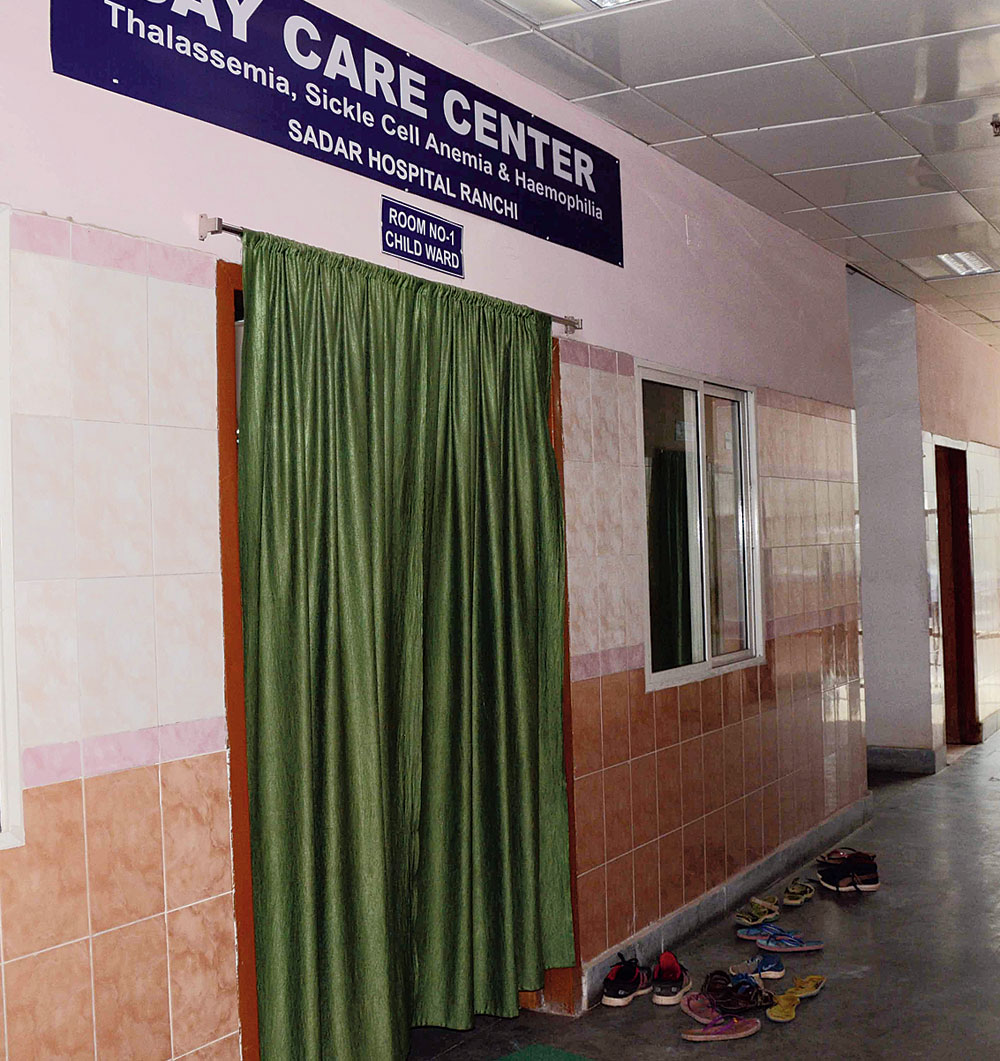Asked, state health secretary Kulkarni said he directed hospitals to arrange blood on their own as a step to ensure safe transfusion, but admitted it was difficult for him to act against blood banks that gave unsafe blood to thalassaemia patients.
“Unless the recipient or their parents inform us from where they got blood, how can we act. I can realise that parents of thalassaemia patients wouldn’t like to open their mouths as they repeatedly need blood for transfusion therapy,” Kulkarni said.
Thalassaemia foundation secretary Gera said the situation was extremely worrying.
“Identification of thalassaemia patients with HIV and HCV suggests infected blood is in circulation in Jharkhand and the government has yet to chalk out strategy to prevent this,” Gera said. “As many as seven cases of unsafe blood transfusions have come to the fore in nearly five months (from July 25) at this day care centre in the capital. If screened properly in other parts of the state, more such cases of contaminated blood transfusions could emerge,” he said.
Ranchi civil surgeon Dr Vijay Bihari Prasad said of four cases of HIV, one was from Hazaribagh and three were from Ranchi, while all the three cases of HCV were from Ranchi. “So far, 133 thalassaemia patients have come to the day care centre. Except seven, all were transfused safe blood.”
Seven thalassaemic children who need regular blood transfusions for survival have been found infected by HIV and Hepatitis C at sadar hospital’s day care centre, prompting authorities at the centre to suspect they received untested blood.
Aged between eight and 13 years, the children had been receiving transfusions at the hospital’s day care centre launched in July for thalassaemia, sickle cell anaemia and haemophilia. Of them, four tested HIV-positive and three more HCV-positive. The source of the infected blood is not yet known.
The number of infections could be higher across the state without a mechanism to trace the channels of unsafe blood, said Atul Gera, secretary of Jharkhand Thalassaemia Foundation, who has offered his volunteers at the day care centre.
There are 51 blood banks across the state including 14 in Ranchi from where one is expected to get safe blood, said state drug controller Ritu Sahay, the licensing authority. Generally, persons with thalassaemia need transfusions every three to four weeks but in acute cases the frequency may be even more.












